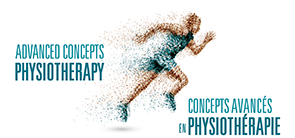| |
|
|
Chronic Headaches/Migraines
Anyone who suffers from headaches can vouch for the level of disruption they bring to one’s daily life. Everyone’s headaches are different and finding the source of your headache will be a large factor in finding the best treatments and management techniques for your headache disorder. Chronic headaches can be attributed to many different parts of the body but most fall under one of these three categories:
• neck disorder headache
• tension headache
• migraine
(That is not to say that you may not be suffering from a combination of these types.)
Other possible causes of headaches include:
• cluster headaches
• pinched nerve(s)
• TMJ dysfunction
• facet joint pain
• fibromyalgia
• muscle strain or pain
• rheumatoid arthritis
• spondylosis (spine arthritis)
• whiplash
SYMPTOMS
• building tension and pain in any area of the head or face
• some will have throbbing pain (more commonly associated with migraine)
• some will have constant pain (more commonly attributed to tension, neck injury,
whiplash, etc.)
How can physiotherapy help you?
Acupuncture and mechanical traction are great treatment options for chronic headaches. The physiotherapist will teach you how to stretch and strengthen target muscles that are often the cause of recurring headaches.
Degenerative Disc Disease
(Cervical Spine)
Degenerative Disc Disease is considered a natural part of the aging process but this doesn’t mean you need to sit back and suffer. DDD is caused by decreasing levels of fluid in the intervertebral discs. This fluid is what keeps our discs spongey, mobile and shock absorbing. When we age and our discs “dry up”, they become stiff and are much more prone to tearing.
SYMPTOMS
• inflammatory pain (irritated nerve endings)
• mechanical pain (compression of nerve root)
• radiating pain from neck into back of head, shoulders, upper back and/or arms
• muscle spasms
• persistent neck pain with random episodes of acute pain
How can physiotherapy help you?
Strengthening the muscles around the affected joints is a very important part of the treatment for this condition. The physiotherapist will teach you the appropriate postural and neck strengthening exercises as well as pain alleviating techniques you can use at home. Manual joint mobilizations are also often used to treat this issue.
Cervical Osteoarthritis/Spondylosis
Osteoarthritis of the cervical spine/neck, or spondylosis, is the effect of degeneration of the facet joints in the spine.
SYMPTOMS
• pain that radiates to the shoulder or between the shoulder blades
• pain or stiffness that is worst upon waking and improves once you are up and moving
around
• tingling, numbness, and/or weakness in the arms, legs, hands and/or feet
• decreased coordination
• slowed reflexes
• muscle spasms
• incontinence
• possibly headaches radiating in back of head
How can physiotherapy help you?
Just like Degenerative Disc Disease (above), strengthening the muscles around the affected joints is a very important part of the treatment for this condition. The physiotherapist will teach you the appropriate postural and neck strengthening exercises as well as pain alleviating techniques you can use at home. Manual joint mobilizations are also often used to treat this issue.
Thoracic Outlet Syndrome
Thoracic Outlet Syndrome is a complicated condition in which blood vessels and/or nerves are compressed as they exit the thorax. This most commonly affects the following structures:
• subclavian artery
• subclavian vein
• lower roots of brachial plexus (nerves that supply upper body and arms)
SYMPTOMS
• pain, altered sensation, or weakness in upper limbs
• altered sensation and temperature in arm and hand
• pain or discomfort above or below collarbone; may radiate down the arm
• symptoms aggravated by lifting arm or turning head/neck
How can physiotherapy help you?
After a thorough assessment of the cause of this injury, the physiotherapist will often employ mechanical traction to help alleviate the nerve irritation. Muscle stimulation also helps retrain the muscles that can often contribute to this issue. Manual therapy is an essential role is treatment for this condition. Joint mobilizations, muscle energy techniques, and stretching will be used as treatment techniques.
Whiplash Injury
Whiplash is an injury caused by a sudden acceleration and/or deceleration forces on the neck. This term encompasses a variety of issues which may affect muscles, joints, ligaments, bones, discs and nerves. Following a motor vehicle accident or other injury causing whiplash, many of your muscles function improperly and must be retrained to help them regain proper mobility.
SYMPTOMS
• acute or chronic neck pain or stiffness
• headache
• shoulder pain, arm pain, upper back pain
• dizziness
• altered sensation
• weakness
• sudden hearing difficulties
• difficulty concentrating
How can physiotherapy help you?
The physiotherapist will provide you with important exercises to retrain your muscles, improve your posture, and strengthen the muscles that are essential for head control and protection. Technologies such as manual traction or TENS may be used to aid you in alignment and pain relief. |
| |
|










